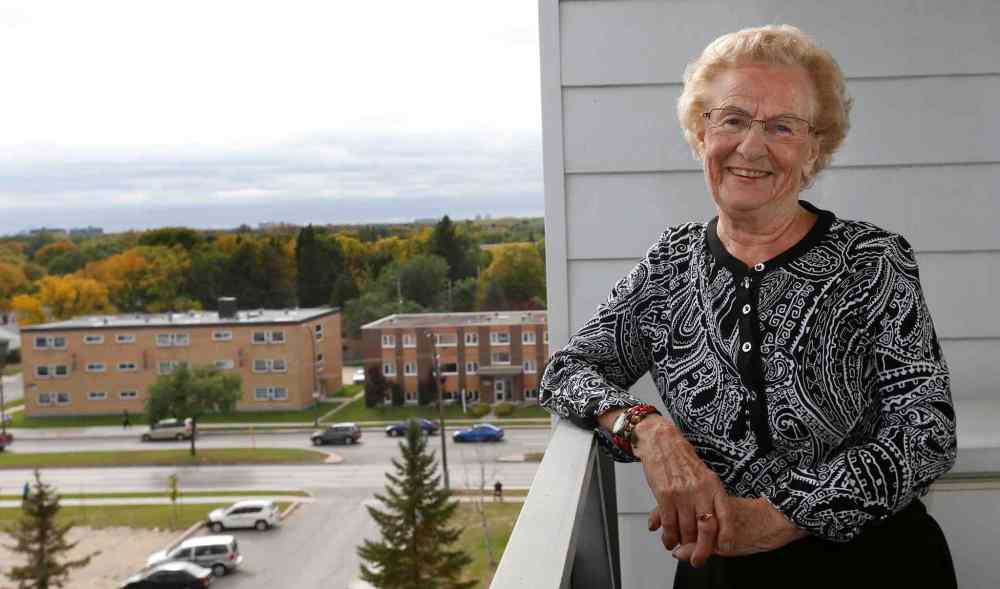How Canadian seniors are getting out the youth vote
Advertisement
Read this article for free:
or
Already have an account? Log in here »
To continue reading, please subscribe:
Monthly Digital Subscription
$0 for the first 4 weeks*
- Enjoy unlimited reading on winnipegfreepress.com
- Read the E-Edition, our digital replica newspaper
- Access News Break, our award-winning app
- Play interactive puzzles
*No charge for 4 weeks then price increases to the regular rate of $19.00 plus GST every four weeks. Offer available to new and qualified returning subscribers only. Cancel any time.
Monthly Digital Subscription
$4.75/week*
- Enjoy unlimited reading on winnipegfreepress.com
- Read the E-Edition, our digital replica newspaper
- Access News Break, our award-winning app
- Play interactive puzzles
*Billed as $19 plus GST every four weeks. Cancel any time.
To continue reading, please subscribe:
Add Free Press access to your Brandon Sun subscription for only an additional
$1 for the first 4 weeks*
*Your next subscription payment will increase by $1.00 and you will be charged $16.99 plus GST for four weeks. After four weeks, your payment will increase to $23.99 plus GST every four weeks.
Read unlimited articles for free today:
or
Already have an account? Log in here »
Hey there, time traveller!
This article was published 24/09/2015 (3725 days ago), so information in it may no longer be current.
OTTAWA — Cassie Strong isn’t thrilled with the federal election.
A widowed mother and grandmother who lives in the Saint Boniface-Saint Vital riding, Strong is fed up with the name-calling and the personal attacks. But she is still paying attention and is still going to vote.
It’s something her mother instilled in her and something she has instilled in her daughter and grandchildren.

“My mother would have strung me up if I didn’t (vote),” she said.
Strong is not alone, and a trio of seniors’ associations in Canada are hoping to get people such as her to get their friends and family to the polls as well.
In Canada, voters over the age of 65 are the most likely to cast a ballot. In 2011, 75 per cent of seniors (over 65) and 71 per cent of Canadians between 55 and 64 voted, compared with 46 per cent of Canadians between 18 and 44.
That means more than 6.8 million Canadians over the age of 55 cast a ballot in the federal election, accounting for nearly one in every two votes — even though they account for only about one in three eligible voters. Comparatively, voters in the 18-to-44 age group account for almost half the eligible voters, but cast a little more than one-third of the ballots.
The Canadian Association of Retired Persons, Congress of Union Retirees of Canada (CARP) and National Pensioners Federation want to use the influence of their members to change that.
Together, they have launched Seniors Vote — an informal push to ensure seniors make sure they are registered to vote and then to identify at least three family members or friends who don’t plan to vote and change their minds.
“This is the first time we’ve formally done this,” said Susan Eng, executive vice-president of CARP.
She said she is getting good feedback on it. “Anyone I tell about it says, ‘Oh yeah, I know three people.’ ”
For CARP, the aim isn’t entirely the good of democracy. Eng acknowledges if seniors are telling family members to vote, they are likely going to explain to them what issues are important to them and might even persuade those three people to vote the same way.
Seniors already have a lot of influence on public policy because politicians know they vote. The list of promises aimed directly at Canadians 65 and older is growing almost every week of the campaign.
Conservative Leader Stephen Harper offered up a $300 tax credit for single or widowed seniors. Liberal Leader Justin Trudeau promised to boost the guaranteed income supplement for low-income seniors by 10 per cent, and then raise it and the Old Age Security payments each year by an index based on increases in the cost of the things and services seniors buy most.
NDP Leader Tom Mulcair has more than $4 billion on the table for home care, nursing home beds and the start of a national pharmacare program.
Eng said all of the issues CARP identified for this election have been addressed so far by one or more of the parties. “In fact, they’re bidding each other up, which is tremendous.”
But that pleasure is not shared by everyone in Manitoba.
Connie Newman, executive director of the Manitoba Association of Senior Centres, said she has heard a lot of grumbling at various meetings in communities around Manitoba.
“The people I’m connecting with are saying, ‘Nobody is talking about us,’ ” said Newman. “They don’t know who to vote for — and if I was a politician, I’d be concerned about the fact that seniors who normally vote don’t know who to vote for.”
Either the items on offer aren’t getting through to many seniors or they’re not enough, she said, adding access to services is a big concern.
mia.rabson@freepress.mb.ca














